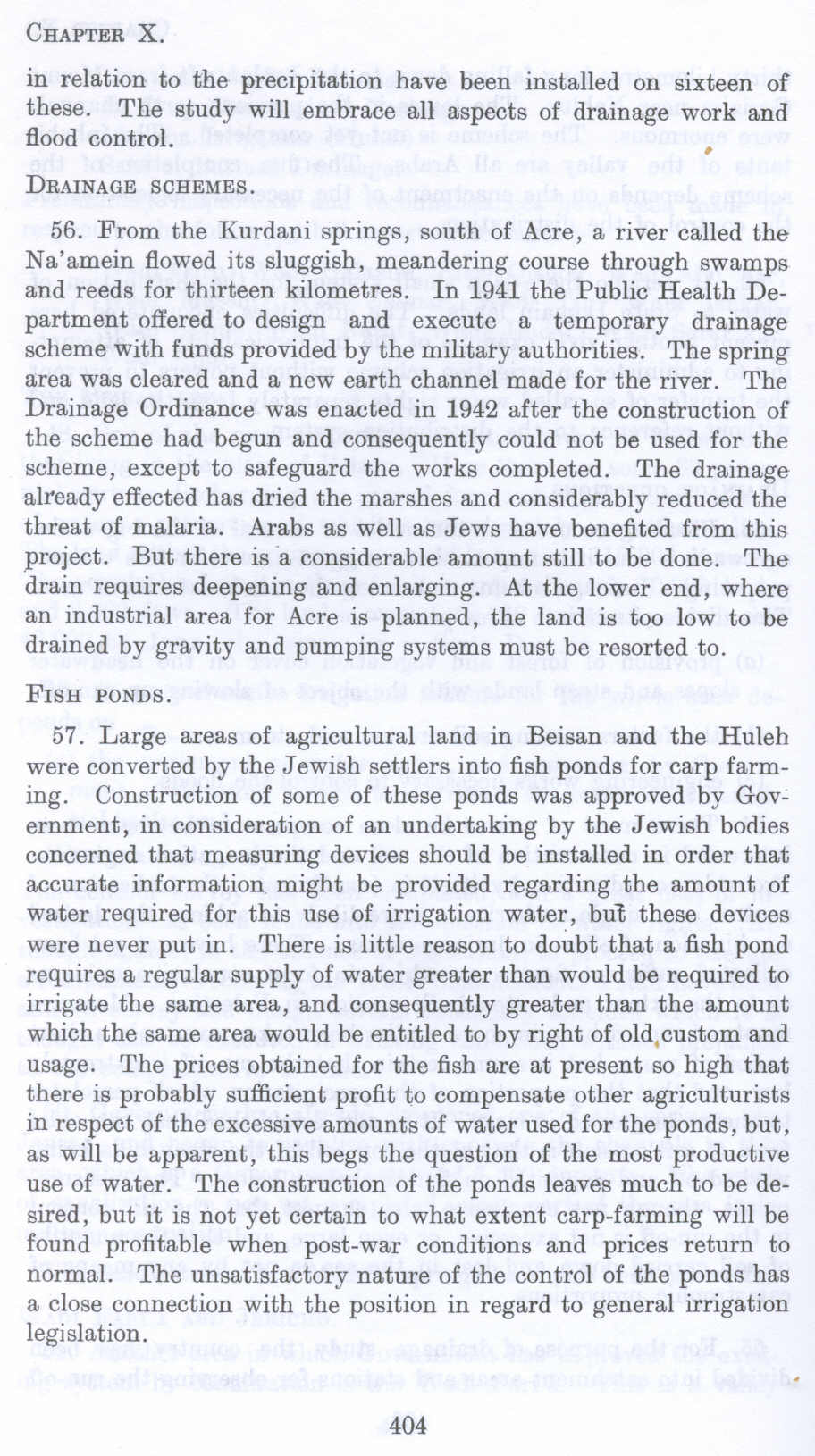| Prev | Next |  |
| Prev | Next |
| PalestineRemembered | About Us | Oral History | العربية | |
| Pictures | Zionist FAQs | Haavara | Maps | |
| Search |
| Camps |
| Districts |
| Acre |
| Baysan |
| Beersheba |
| Bethlehem |
| Gaza |
| Haifa |
| Hebron |
| Jaffa |
| Jericho |
| Jerusalem |
| Jinin |
| Nablus |
| Nazareth |
| Ramallah |
| al-Ramla |
| Safad |
| Tiberias |
| Tulkarm |
| Donate |
| Contact |
| Profile |
| Videos |
British Mandate: A Survey of Palestine: Volume I - Page 404 |
Disclaimer
The above documents, article, interviews, movies, podcasts, or stories reflects solely the research and opinions of its authors. PalestineRemembered.com makes its best effort to validate its contents.


Post Your Comment
*It should be NOTED that your email address won't be shared, and all communications between members will be routed via the website's mail server.
in relation to the precipitation have been installed on sixteen of these. The study will embrace all aspects of drainage work and flood control.
DRAINAGE SCHEMES.
56. From the Kurdani springs, south of Acre, a river called the Na'amein flowed its sluggish, meandering course through swamps and reeds for thirteen kilometres. In 1941 the Public Health Department offered to design and execute a temporary drainage scheme with funds provided by the military authorities. The spring area was cleared and a new earth channel made for the river. The Drainage Ordinance was enacted in 1942 after the construction of the scheme had begun and consequently could not be used for the scheme, except to safeguard the works completed. The drainage already effected has dried the marshes and considerably reduced the threat of malaria. Arabs as well as Jews have benefited from this project. But there is a considerable amount still to be done. The drain requires deepening and enlarging. At the lower end, where an industrial area for Acre is planned, the land is too low to be drained by gravity and pumping systems must be resorted to.
FISH PONDS.
57. Large areas of agricultural land in Beisan and the Huleh were converted by the Jewish settlers into fish ponds for carp farming. Construction of some of these ponds was approved by Government, in consideration of an undertaking by the Jewish bodies concerned that measuring devices should be installed in order that accurate information. might be provided regarding the amount of water required for this use of irrigation water, but these devices were never put in. There is little reason to doubt that a fish pond requires a regular supply of water greater than would be required to irrigate the same area, and consequently greater than the amount which the same area would be entitled to by right of old, custom and usage. The prices obtained for the fish are at present so high that there is probably sufficient profit to compensate other agriculturists in respect of the excessive amounts of water used for the ponds, but, as will be apparent, this begs the question of the most productive use of water. The construction of the ponds leaves much to be desired, but it is not yet certain to what extent carp-farming will be found profitable when post-war conditions and prices return to normal. The unsatisfactory nature of the control of the ponds has a close connection with the position in regard to general irrigation legislation.
Page 404